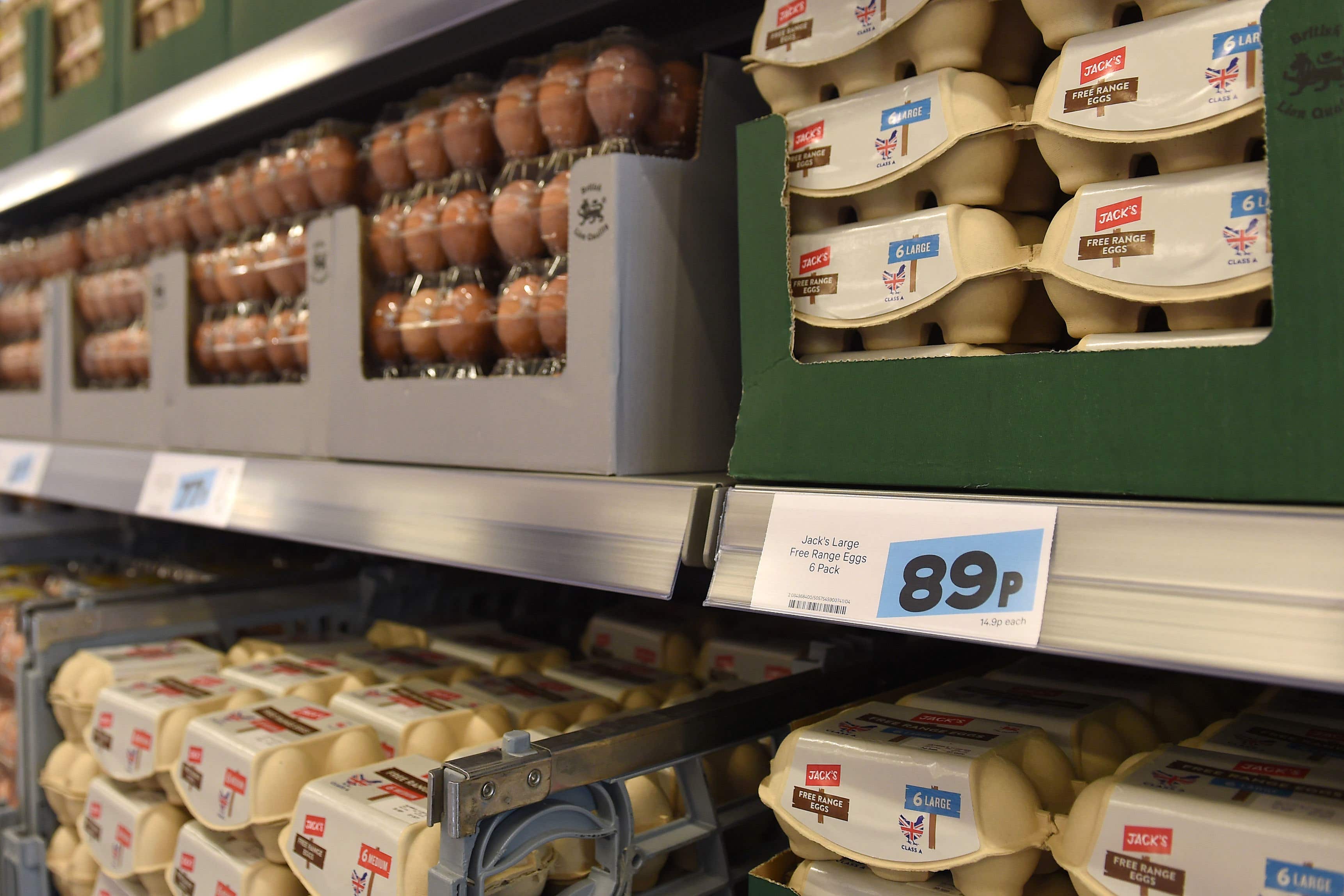Tesco pledges support for British egg sector in ‘uncertain times’
Bird flu and rising costs have contributed to difficulties for producers, while the NFU has called for the supply chain to be investigated.

Your support helps us to tell the story
From reproductive rights to climate change to Big Tech, The Independent is on the ground when the story is developing. Whether it's investigating the financials of Elon Musk's pro-Trump PAC or producing our latest documentary, 'The A Word', which shines a light on the American women fighting for reproductive rights, we know how important it is to parse out the facts from the messaging.
At such a critical moment in US history, we need reporters on the ground. Your donation allows us to keep sending journalists to speak to both sides of the story.
The Independent is trusted by Americans across the entire political spectrum. And unlike many other quality news outlets, we choose not to lock Americans out of our reporting and analysis with paywalls. We believe quality journalism should be available to everyone, paid for by those who can afford it.
Your support makes all the difference.Tesco has announced a multi-million pound support package for its British egg suppliers and producers during a time of turbulence for the sector.
Earlier this week the supermarket giant confirmed it had introduced a temporary buying limit of three boxes of eggs per customer as a precautionary measure amid the impact on supply of rising costs and bird flu.
Asda, Lidl, Marks & Spencer and Morrisons are all also rationing the sale of boxes of eggs.
The UK is facing its largest bout of bird flu.
This is compounding existing shortages caused by producers cutting back on output or leaving the industry due to increased costs, with Russia’s invasion of Ukraine driving up farmers’ energy bills along with the cost of chicken feed, hens and packaging.
Demand for eggs is also up as consumers seek out cheaper sources of protein to offset soaring food bills.
On Friday, Tesco said it was committing to provide a further £13.9 million of additional support to its suppliers and producers until March 2023, with the support continuing after that date.
The investment was welcomed by the British Egg Industry Council.
Its chief executive Mark Williams said: “We are delighted that Tesco is investing in its supply chain to support British egg producers.
“We know that consumers want and expect the eggs on retailers’ shelves to be British and it is great to see Tesco publicly reinforcing its commitment to stock British Lion eggs.
“The Lion is not only recognised by consumers as a sign of quality, but it also shows that the eggs are approved by the Food Standards Agency to be eaten runny by everyone, including vulnerable groups.”
We hope the support we’re providing alleviates some of the pressure being felt and provides the industry with confidence and protection during these uncertain times
Tesco’s Dominic Morrey said: “We know the British egg sector continues to face acute market conditions with input costs continuing to increase, and avian flu causing disruption and adding complexities to farming conditions and the supply chain.
“We’re pleased to continue our support for UK suppliers and producers, as well as provide reassurance to our customers that we will remain 100% British on all our shell eggs.
“With five-year contracts with our suppliers now under way, and our well-established feed model in place, we hope the support we’re providing alleviates some of the pressure being felt and provides the industry with confidence and protection during these uncertain times.”
Tesco’s support package was announced a day after Waitrose pledged a £2.6 million investment in its egg suppliers.
Waitrose remains one of the few supermarkets not to impose purchase limits on customers.
The National Farmers’ Union (NFU) has called for an “urgent investigation” into the egg supply chain disruption.
The NFU said the Department for Environment, Food and Rural Affairs (Defra) should look into whether a declaration should be made under the Agriculture Act 2020 to ensure “much-needed support” for egg producers.
Responding to the call earlier this week, the Government said the situation is being monitored but insisted the UK’s food supply chain is “resilient” and that no “significant impact” is expected overall.